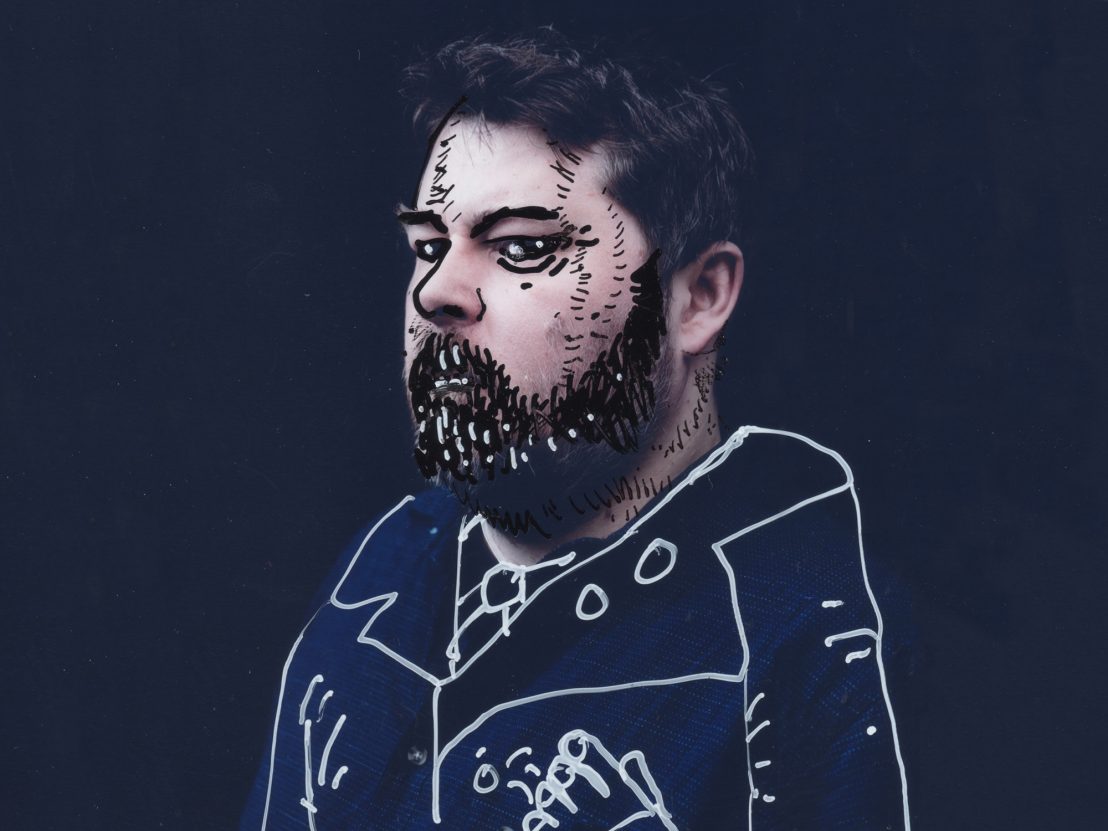
The Free Fire writer/director opens up about his colourful past, and why he’s desperate to make a rom-com.
It’s set in Boston, Massachusetts and boasts a multinational cast, but Free Fire marks a homecoming of sorts for British writer/director Ben Wheatley. Specifically, it’s the first occasion since 2009 that he has shot a feature in his adopted hometown of Brighton, having previously filmed in Belfast for High-Rise, Sheffield for Kill List, across Derbyshire, North Yorkshire and the Lake District for Sightseers, and in a field in England for A Field in England. He moved down from London a little over 20 years ago to attend university, and it’s been his base, along with his screenwriting partner and wife, Amy Jump, ever since.
Free Fire isn’t a Brighton film, but as with Wheatley’s micro-budget debut, Down Terrace, something of the unique character of this vibrant city by the sea seems to infuse every frame. Perhaps it’s something to do with the fact that the single location setting, an enormous old warehouse on the outskirts of the city, adjoins the former HQ of the region’s only daily newspaper. Or maybe it’s because, after a long day shooting in (and shooting up) said warehouse, the cast and crew would hang out in one of Brighton’s many traditional taverns, sinking a few suds and soaking up the local culture.
When LWLies spent an afternoon with Wheatley in Brighton – visiting the Free Fire set, sifting through crates of second-hand vinyl and grabbing a quick drink at the pub where Brie Larson, Armie Hammer, Jack Reynor and co bonded – it struck us that this place is as much an extension of Wheatley as he is of it. Both city and director share a creative, free-thinking, live-and-let-live outlook, each has its own colourful history, and both offer something a little different – something edgier and more unpredictable – from the norm. But if we’re viewing Ben Wheatley films as products of their environment, it’s worth noting that his story begins not on the south coast or in the UK capital but in a small commuter town in Essex…
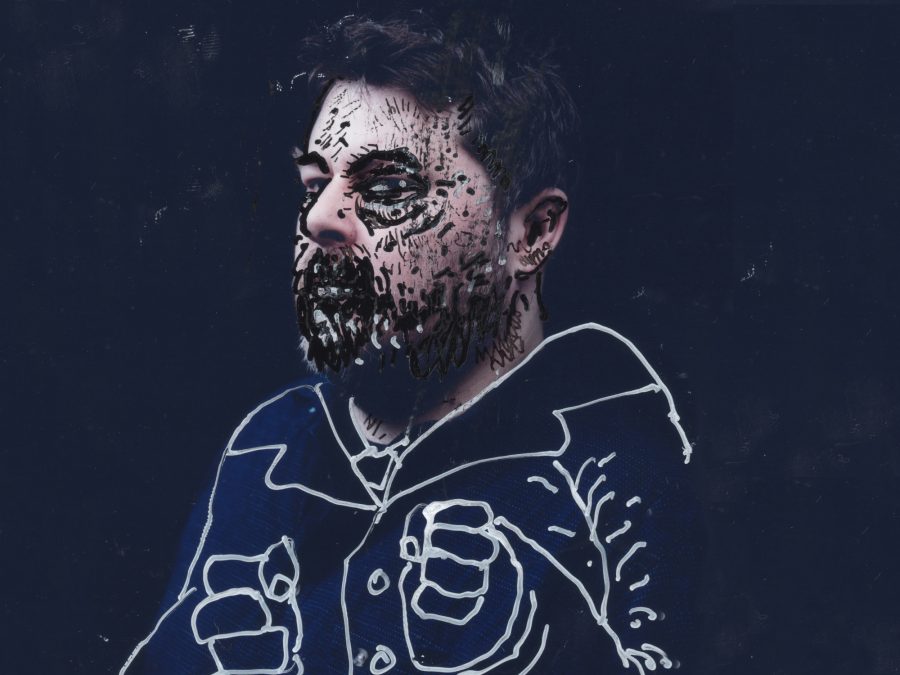
LWLies: You were born in Billericay in Essex, which most people will know from the Ian Dury song. What was it like growing up there?
It’s quite an interesting place in a way. The only cultural reference points for it are ‘Billericay Dickie’ and also Gavin & Stacey, because Gavin comes from Billericay. It’s also where the Pilgrim founding fathers gathered on their way to the Mayflower – some Billericay blokes actually went off to America. For such a little place to have such as important bit of history snake through it, it’s kind of a weird thing when you think about it. Billericay’s got a twin town in America that’s famous for having the first person killed in the American Civil War.
Are you into your history?
Not really my family history so much, but I’m interested in where I grew up. People tend to be quite snide towards Essex, but I’m proud of where I’m from. When you meet other people from Essex there’s a shared sense of humour and a shared outlook which you can recognise. I was lucky to grow up in a suburban environment, but moving to London made me quite dislocated from that. We moved to Belsize Park and I went to Haverstock School which is just opposite Chalk Farm station. Quite an interesting school it turns out. It’s since been rebuilt as an academy but at the time it was like an old Victorian comprehensive. There were some weird people there. The Milibands went there; Ed was in the year above me at school. The papers used to call it ‘Red Eton’ but it was about as far from fucking Eton as you could get.
Did you have a sense back then of what you wanted to do when you left school?
I didn’t really know what I was gonna do the whole way through my A-levels. That’s when I ran into Amy Jump and she told me to go to art school, which I hadn’t really considered as an option. She did a foundation course so I applied for the same one. I could draw reasonably well but I was probably being lined up to be a painter-decorator or something. I was writing at the time but I was a bit bohemian, long hair and all that. I’d always drawn comic strips but I didn’t really understand anything about film. I wanted to make something and I got hold of a Video8 camcorder and filmed some bits and pieces, but the technology still seemed too advanced and complicated. But when I went to Brighton [University] I did a module on video production and the AV department had an edit suite where you could hire cameras and book out the space. I spent my time doing that and basically taught myself how to make films.
What sort of stuff were you editing at that time?
I started filming just… stuff. I did a film called Things in My House where I just filmed all my books and shit like that and then edited it. Really, really rudimentary stuff. Then I started filming bits of drama and eventually I began editing stuff for other people, taking films apart and recutting them. I eventually started doing more complicated short films and worked with Robin Hill – who’s in Down Terrace – and his brother, Dan, and their friends, Mike and Andy Hurst. They were at sixth form and had a more traditional, Spielberg-style, making-movies-since-they-were-10 background. They did all these really complex remakes of Stallone and Van Damme movies – they would do stuff like set themselves on re and blow stuff up. The four of them were pretty industrious.
I worked on a feature they made in 1997 called Project: Assassin, which was like a Cronenbergian, brainworm, someone-getting-murdered-in-a-squat type movie. It was amazing because none of these guys came from a film background. They just made this thing and eventually took it to Cannes and ran into some guy in a bar and got distribution for it. Whenever I speak to young directors now I tell them you’ve got to do it off your own back because otherwise you’re not gonna get anywhere. Everyone looks at you like you’re insane because they’re trained to apply for money and they’re conditioned into thinking that it’s all fair and everyone’s fair and everyone gets a go. That wasn’t our experience.
What happened after that?
Robin and Andy went off to LA and made another film called You’re Dead with John Hurt and Rhys Ifans. It didn’t go very well. I worked on the script with Robin and we were supposed to get paid for it but it didn’t happen. It was horrible. I went, ‘That’s it, I’m done’. I was young and I felt under a lot of pressure. So I stopped. I stopped writing and I ended up getting a job in a marketing company. Amy and I were just pottering around really. It got to a point where one of us had to go to work and I thought, ‘Fuck it, I’ll do it’. But we were happy doing our own thing really. The funny thing is I didn’t get anywhere with film until I stopped caring about it and just relaxed a bit.
How did that lead to you starting your blog?
The marketing company I worked for went bust. I tried to get another job and I couldn’t because the dot com crash had just happened and there was no work, so I had to retrain. Had about 20 grand in savings. Amy was pregnant and I decided I would try and get into the video game industry. At the same time we started posting stuff online, wasting time making flash animations. Back then there were no YouTube algorithms deciding what people watched. You could directly plug into an online audience. First it would be a few hundred people, then we posted a couple of things that got seen by a few thousand people and I thought, ‘Wow, this is really amazing!’
That turned to hundreds of thousands and then millions. By pure fucking luck and good fortune, I managed to get a job doing something while I was fucking around trying to do something else. They were really desperate times though. There was one month where we were literally a day away from having to default on our mortgage, and I got a phone call confirming a job to do some viral stuff for an extreme sports channel. That was the turning point. After that it got much easier.
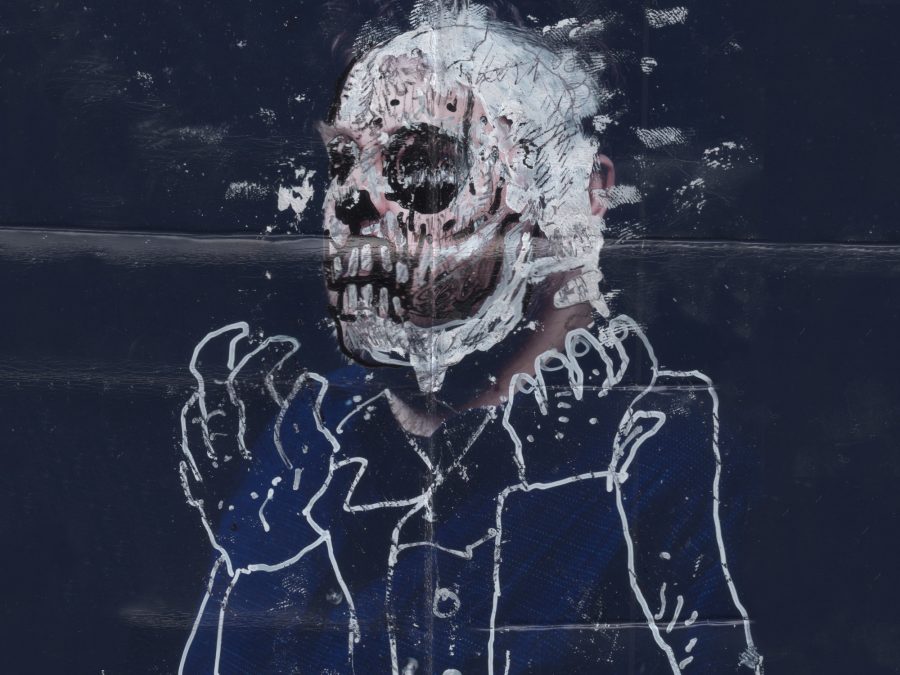
Do you ever reflect on that period in your lives?
It certainly informs a lot of the work I’ve done. I always get asked things like, ‘Why do you do so much stuff?’ I love what I do but it’s also because it all feels so lucky that it even happened at all. Those days were fun as well, the internet back then was like the Wild West in a way. At the height of it I was making two or three things a day, and you could almost feel the pulse of the internet. But as soon as you stepped away it became like a foreign country again. Everything moved so fast.
To what extent did that early work inform your filmmaking style?
Certainly the compression of information and storytelling side of it. It’s also having confidence in your own voice and just going, ‘Fuck it, I’m gonna do this and I don’t care.’ When I was doing the online viral stuff, you’d pitch the ideas and do the creative side of it but you’d also have to deliver the post-production. The thing about the net back then was the audience was so open-minded. It’s different now, they’re more bitter – or maybe the bitterness was always there, it’s just come to the surface. One of my perverse pleasures is to scroll through the comments on American political sites just to see what’s going on.
You’re fairly active on Twitter…
Mostly I just share stuff I like. I went through my Twitter feed recently, muting anybody talking about politics. I’ve just had enough. My attitude is to always be encouraging, be as positive and as constructive as possible. People are too quick to form an opinion and to judge. It’s a scramble up the hill to the moral high ground isn’t it? I don’t do Facebook though, haven’t done for years. I remember Facebook hit when I was at the BBC doing The Wrong Door and I only really joined to see who knew who. I lost interest pretty quickly after that. And I don’t really post to my blog anymore.
Why did you stop that?
It was one day when it was really hard to upload a picture for some reason, the code had stopped working or something, and I’d just had enough of it. But that’s what happened, it was websites and then it moved to blogs and now it’s all on Twitter. People send tweets like they’re emails or texts, I find that really bizarre.
What sort of offers were you getting off the back of the viral stuff?
Mostly stuff for TV companies. I edited the Modern Toss pilot and I did all the extras for the Big Night Out DVD. I started doing ads as well, so that was all going on at the same time. Then Joe [Cornish] decided he didn’t want to do Modern Toss any more so they asked me to direct it, which was a major break really. Then Armando Iannucci replied to an email I’d sent about a year earlier. They were doing Time Trumpet and invited me to come in and have chat. I thought, ‘Fuck!’ So I scribbled down some ideas on a sheet of A4 – one-liners, that sort of thing. When the series aired lots of those jokes had made it in so I wrote them to ask about getting paid and they were like, ‘Oh yeah, here’s a cheque’. Again, ‘Fuck!’ Then The Wrong Door came along which was a crazy experience, and then I did Ideal with Johnny Vegas. But I wanted to do more drama. My agent suggested I do a short film so we did that, then Robin and I got together and expanded it into a feature, which became Down Terrace.
Do you still draw?
I did all the initial storyboards for Free Fire. I tend to draw the whole film out just to get a feel for it. I’ll sketch it out really roughly and then I’ll usually get someone else to redraw everything. That’s what we did on Free Fire and High-Rise. On Freakshift, which is a sci-fi thing we’ve been working on, Mick McMahon has been drawing stuff. Storyboarding is the cheapest way of making the film and it forces you to really think about it. The thing about movies is, cars blowing up and guns going off is big ticket imagery, you can sit there and imagine it in your head. What’s really hard is all the boring stuff like people coming through doors or someone going up some stairs. I’ll spend a lot of time working all that stuff out. Of course, there’s always a certain degree of dysmorphia, where you imagine something is better than it is or you don’t see the problems with it.
Has that process gotten any easier?
There’s more of a balance there working with Amy, because she’s so brutally honest. I like the fact that we’re a couple making films, it makes it interesting. And I like the fact that I get to spend time with her that I probably wouldn’t otherwise. She’s completely outside of the industry, she doesn’t do interviews and doesn’t particularly like going up to London to events. She just wants to do the work, get in and get out. She’s not a cinephile, but she really cares about image and storytelling from her own unique perspective. But we’ve always had an agreement that I’ll be kind of like the face of it, I do all the press and that.
It’s quite weird going from never having been interviewed before to being interviewed 500 times. Suddenly people are writing down what you’re saying, they’re recording it and putting online. We lucked out with Down Terrace because people were really kind about it – it was a first film and low budget, we felt we’d been given the benefit of the doubt. With Kill List, I thought critically we were gonna get really fucked. But it didn’t happen. It’s a very weird film, you know. And it’s a mean film, it’s much meaner than most movies are. I watch a lot of modern horror movies and they’re scary, but they’re not mean like that.
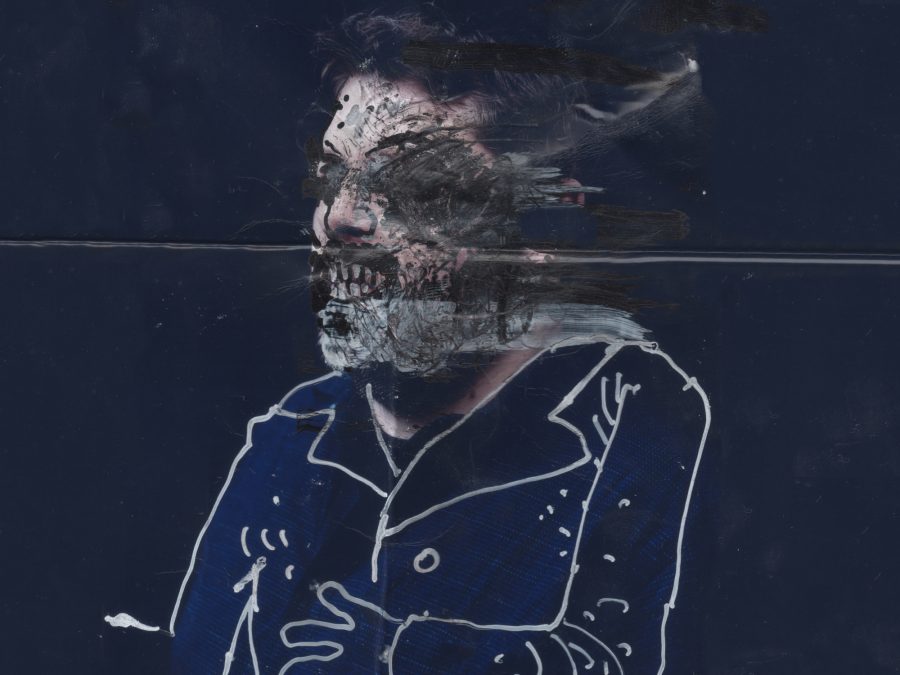
What sort of stuff scares you?
I got the Alan Clarke boxset recently and I was watching Beloved Enemy, which is a film about a business deal, and it’s just horrible, terrifying to watch. Or Adam Curtis. Now that’s scary stuff. The only problem is when he veers into a subject I actually know something about and I think, ‘Hang on, woah woah woah, that’s not right…’
He’s someone who’s found a new lease of life through online platforms like BBC iPlayer. Do you see things moving more in that direction, distribution wise?
The problem is it’s hard to make your money back that way. You look at A Field in England, it cost £300,000 but only made $30,000 in the US so it’s seen as a massive failure. But in the UK it opened simultaneously in cinemas and on TV and a million people saw it on the first weekend. So it depends what your perspective is. You always worry about the money side of things but if you can guarantee an audience that’s the most important thing. Now A Field in England screens every couple of weeks up and down the country, and in a way that’s more exciting because it means there’s a grassroots following there. For me it was always supposed to be the kind of thing you’d discover on late-night Channel 4 and go, ‘Fuck, I can’t believe this has been made’. But I know it’s not for everyone. I think the Little White Lies review said it was like being punched in the face by your best friend…
How did that make you feel?
I thought it was great! We always knew it would be difficult – it’s a black-and-white film about the English Civil War… you’re already fucked. What I’ve learned is that each experience is different and there’s an audience for everything, but people will only walk a certain distance to go to the cinema. You either need to have lots of screens or you need lots of advertising to tell people it’s on, and if there’s a football match on or the weather’s nice then you’re fucked. That’s the cold reality of it. But the thing with putting movies in cinemas is, you’re not part of some business scheme for some channel that’s trying to change its audience by sticking you up there as an experiment, and not releasing the sales figures either.
Do you see yourself make ‘bigger’ films moving forward?
I think so. But if I can do smaller scale stuff and if it makes sense to then I will, because the actual experience of making A Field of England was as fun as making High-Rise or Free Fire.
Would you ever want to make, say, a Marvel movie?
I dunno. I don’t really know how those things work. ‘Marvel Zombies’ hasn’t been done which is what I’m interested in. Maybe that’s a bit too niche. Marvel’s interesting in that it’s kind of a hybrid of cinema and television. A very, very expensive TV show that you buy a pass for every three months. If I’m doing bigger stuff I try to mitigate against any confusion on the part of the people I’m working with. That’s why I storyboard as much as possible, so everyone knows what to expect and there’s no confusion. That’s when it all falls to pieces. If you’re all in agreement from the start then you can probably stop that shit from happening.
What have you got lined up next?
We’re doing Freakshift next, which is something we’ve been developing since Kill List. We couldn’t get it financed it then because it’s got a female lead and at that point there weren’t many women-based action movies about. You know, either you’ve got Charlize Theron or you don’t get the money. And then I’m working on Hard Boiled which is a Frank Miller adaptation. Then Wages of Fear, which we’ve just finished the script on so that’s ready to go. At any given time we’ll usually have six or seven scripts on the go, but they’ll be first drafts and they’ll go in the drawer and then you’ll come back to them. Or maybe you won’t. You can’t be precious about this stuff.
So what’s on the backburner right now?
Oh, tonnes of stuff. Some comedy and about three sci-fi/fantasy films – we’ve got a script which is an adaptation of ‘Gauntlet’, the ’80s video game. And we’ve been trying to do a rom-com for a long time now.
What would a Ben Wheatley rom-com look like?
I dunno yet, we haven’t written it. I think it will end up being more Amy’s film. We both really love What’s Up, Doc? – if we could do a film that was vaguely close to that world then we’d be happy. It’s charming and happy but you’ve also got gangsters in it. I’ve been trying a lot of different writing exercises recently, like what if you write a story where no one dies or the conflict doesn’t end in violence? It keeps you fresh and it stops you from repeating yourself.
Are you wary of burning out?
Well, you wanna keep making as many films as you can but last year was tough. To do two movies back to back was really hard, especially when High-Rise was in post and the final bits of finance for Free Fire were being worked out. I kept diaries a bit during that time and reading some of them back now… it was just the stress of it, you know. I worked on those movies for almost three years solidly. That’s about as extreme as I’d like to get with it, but we’ve had a bit of a gap now in between shooting Free Fire and the next one, so I’m ready to go again. It’s hard though, you want to keep working but you do need to give yourself breathing space sometimes. The problem is there’s never enough time. I don’t think I’ll ever get to make all the things I want to make.
Free Fire is in cinemas 24 March. Read more in LWLies 69.
Published 29 Mar 2017
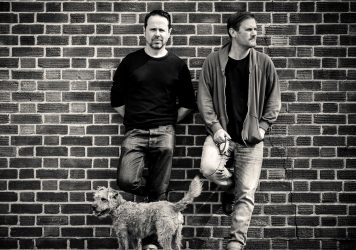
By Paul Weedon
The composing pair break down their sparse score for Ben Wheatley’s latest.
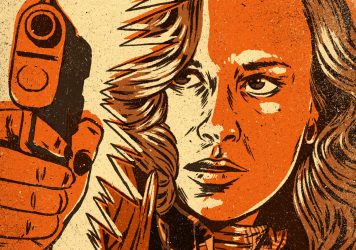
We pay homage to Ben Wheatley and his wild and wonderful shoot ’em up spectacular.
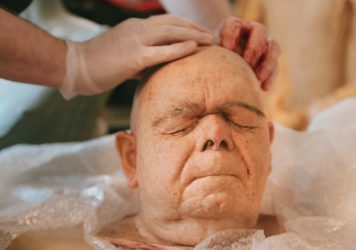
Watch Ben Wheatley’s go-to prosthetic effects artist reveal the secrets of his craft.